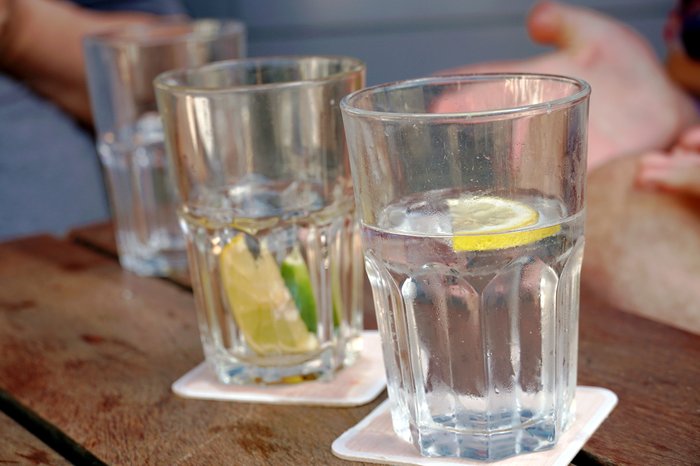For people with chronic kidney disease (CKD) who are having dialysis or on a low-potassium and/or low-phosphate diet, choosing suitable drinks, especially those containing alcohol can be particularly challenging.
Some wines and beers pose potential problems around the amount of potassium they contain. For those who need to limit their fluid to less than 1 litre (2 pints) a day, including one of these drinks can have a big impact on the total fluid consumed over the course of the day.
The recommendations for alcohol for people with kidney disease are the same as for the general population: not to drink more than 14 units a week (for both men and women).
Because alcoholic drinks come in different strengths and sizes, units are a good way of telling how strong your drink is. It’s not as simple as one drink, one unit. For example, one unit is equivalent to:
- a single measure of spirits (ABV 37.5%);
- half a pint of average-strength (4%) lager;
- two-thirds of a 125ml glass of average-strength (12%) wine;
- half a 175ml glass of average strength (12%) wine;
- a third of a 250ml glass of average-strength (12%) wine.
Visit the Drinkaware website for more information on alcohol and units.
It’s not as simple as one drink, one unit
The following should be considered when including alcohol in your diet:
- If you regularly drink as much as 14 units per week, it’s best to spread your drinking evenly over three or more days.
- If you have one or two heavy drinking episodes a week, you increase your risk of death from long-term illness and injuries. Try to have several alcohol-free days over the week.
- Avoid becoming dehydrated by making sure you consume non-alcoholic drinks in between the alcohol-containing ones.
- Choose water, soda water, diet fizzy drinks (avoiding cola-style drinks) or no-added-sugar squash as healthier alternatives.
- Red wine contains a little more potassium than white, so consider white wines rather than a glass of red with your meal if you are on a low-potassium diet.
- Spirits are low in potassium and phosphate as well as lower in volume, so a good option if you need to restrict your fluid, but be mindful of the units. Consider using diet mixers or soda water if you have diabetes or are trying to lose weight (avoiding cola-style mixers due to their phosphate additive content).
- Many wines, beers and lagers contain added phosphates and ciders are high in potassium so be mindful of this if you have been advised to lower potassium and/or phosphate in your diet.
- Remember to incorporate other fluids you may be having into your fluid allowance, such as gravy, soups, ice creams, custards, creams and yoghurts.

Speak to your kidney team for personalised advice
It’s always wise to check with your doctor or dietitian before incorporating alcohol into your diet and it is recommended that you combine your alcohol with food. Finally, if you want to drink alcohol, please discuss this with your pharmacist as some medications do interact with alcohol.
For people with diabetes and CKD, alcohol may be safe to drink if you have your blood sugar level under control. Remember that alcohol on an empty stomach can cause blood sugar levels to drop. Additional ingredients in mixed drinks may also add carbohydrate that must be considered.
If you have any other questions about enjoying alcohol safely, please speak to your doctor or your kidney dietitian.